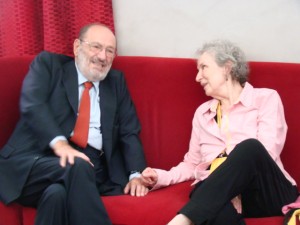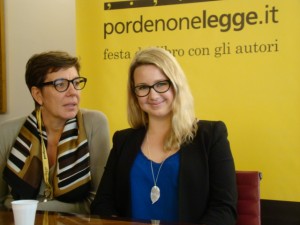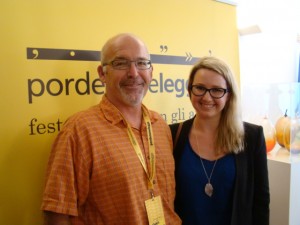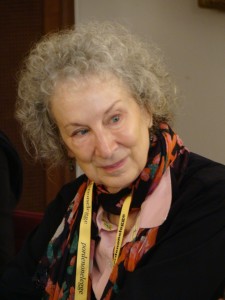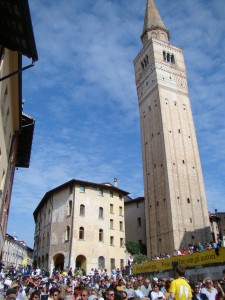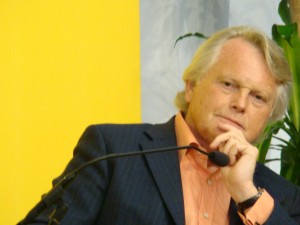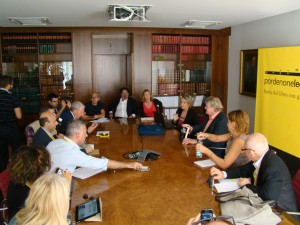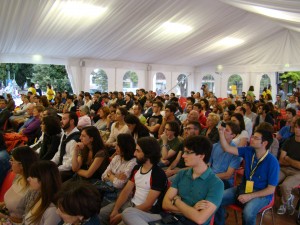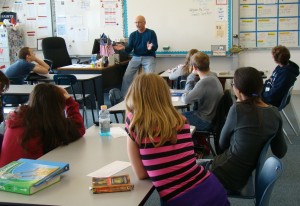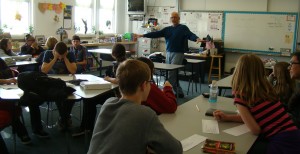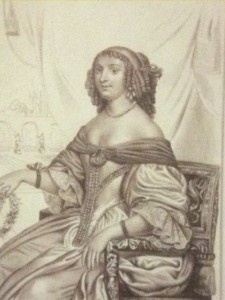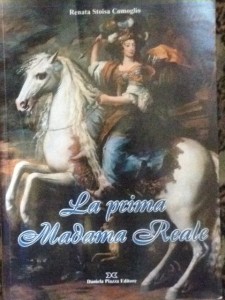The small city of Pordenone, Italy hosts a winning annual book fair. This year was no exception.
Pordenonelegge (it translates to “Pordenone reads”), now in its fourteenth year, has become Italy’s second most important annual literature festival. This is an impressive accomplishment for a working class town of slightly less than 50,000.
Pordenone is nestled in Northeast Italy, about sixty kilometers (35 miles) from Venice. When the Pordenonelegge book festival comes to town, the city’s characteristic medieval center transforms from a quiet community to a vibrant metropolis bustling with an enormous audience keen on culture and literature.
From 18-22 September, more than 120,000 visitors attended some 200 events, featuring 263 authors, philosophers, journalists, poets, and artists of international standing.
This was not only an opportunity for authors and publishers to sell books. It was a lively intellectual exchange of ideas and philosophy. It was a hands-on discussion on how to write. And it was an exploration into the mechanics of evoking emotions through the written word.
It was a thoughtful discussion of the challenges we face as individuals (love, loss, desire, ambition, etc.) and the problems we face as a society (Syria, economics, racism, and more).
The great English novelist Martin Amis presented his newest work, “Lionel Asbo.” The title character as a very violent but not very successful criminal who wins 140 million Pounds Sterling in the English National Lottery. Amis said he tried to show how fame has become the new religion in western society, and that the only way to counteract that troubling trend is through education. Hear, hear.
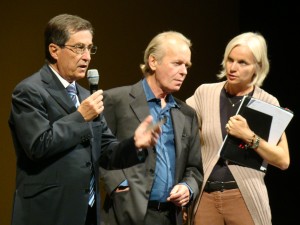
English novelist Martin Amis (center) listens to an interpreter as he is introduced before receiving the prestigious “History in a Novel” Award
A well-respected intellectual and author from Greece, Petros Markaris told a large audience the economic troubles threatening the European Union are not unsolvable. He went on to say the other countries in the EU should stop blaming Germany and start making their own proposals for a new European economic plan.
His words were well received by an audience comprised almost entirely of Italians. Italy is frequently described as on the brink of financial and economic collapse, and Italians generally feel their political leaders only follow the orders of German economists, rather than taking steps to reduce taxes, create jobs, and revive their economy.
The five days of Pordenonlegge featured presentations across seven different themes. Beyond Literature, experts also spoke about Screenwriting, Poetry, and Philosophy. One program, called “Aperitif with an Author” was a chance for a small group to sit with a well-known author or journalist, share a cocktail, and engage in a lively discussion. How cool is that?
One of the most popular themes was Children’s Books. School groups, from elementary school aged brand new readers to first year university students attended lectures, participated in hands-on writing workshops, and even had a chance to meet kid’s favorite Geronimo Stilton.
Another author present was Booker Prize winner John Banville (the Booker Prize is the United Kingdom’s equivalent to the Pulitzer Prize in the US). Banville’s latest work, called “Ancient Light” is a story of obsessive love and the power of grief. His prose has been compared to poetry.
In a meeting with journalists, Banville said he felt anything “weird” in a book will not work if it is done for too long. He described “weird” as dream sequences, flashbacks, stream-of-consciousness narratives, even sex scenes. A very pragmatic writer, Banville urged writers in the audience to write to the end of their book, then go back and worry about making it readable.
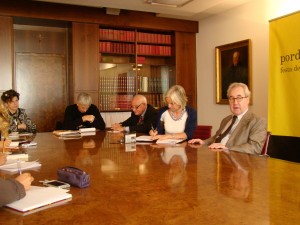
Irish writer John Banville (right) meets with a group of journalists before making his public appearance.
Past editions of Pordenonelegge have hosted noteworthy international authors including: Erica Jong, J.M. Coetzee, Tony Harrison, Michael Cunningham, Jeffery Deaver, and Ian McEwan.



